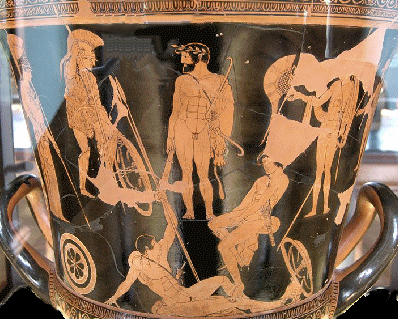|
BACK
HTML Novels 1996—World's First True Digital Novels
*Criteria. Jean-Thomas Cullen (writing as John Argo and as John T. Cullen) published the world's first true online e-books starting with Neon Blue (Suspense) in April 1996. These websites from the 1990s are still live today at the Clocktower Books Museum pages. With his talented business partner Brian Callahan, JTC (as he often signs his correspondence) published original works under the following conditions:
(1) his own work NOT public domain, therefore no comparison with Project Gutenberg and the like;
(2) novels (in full, commercial grade, not samples or teasers);
(3) online in HTML format to be read online, not on portable media such as CD-ROM, floppies, or tape, as a few other innovators were experimenting with doing;
(4) in weekly serial chapters, released in sequence one each Sunday evening Pacific Standard Time in San Diego for readers around the world;
(5) with the option for avid readers to download a full TXT file if they just could not stand the suspense from week to week, which happened frequently. Clocktower Books maintains a collection of fan mail from around the world at that time.
Clocktower Books Museum. Lots more info at the websites of Clocktower Books and the Clocktower Books Museum Site for more info. Here is the author's personal website, anchor for his webplex of linked fiction, nonfiction, and poetry sites.
Remember History. Hopefully, readers of the new/old HTML novels at Galley City starting 2019 (Blade Runner Year) will learn of the remarkable achievements of early Internet publishing pioneers, and be kind in their reviews. Perceptive readers will be rewarded with a good, solid read—as were those avid John Argo readers from all around the world n (South Africa, China (Taiwan), New Zealand, Australia, Germany, Canada, and across the USA in the 1990s) as they discovered Clocktower Fiction during the final years of the previous century. We still have many of their enthusiastic, thrilled e-mails on file.
|
Why John Argo? In early 1996, Brian Callahan and I (C&C Publishers) were about to go to press with our first two websites that would soon reverberate around the world in that dawn age: Neon Blue Fiction (Suspense) and The Haunted Village (SFFH). We consolidated these into an omnibus publishing site conceived December 1996 (see the Clocktower Books Museum for info about all this history and more.I chose my colorful pseudonym with great care and devotion in 1996 during the dawn of the Internet age. It was a tribute to a new Sense of Wonder in the coming millennium. Huuhhh? Sense of Wonder may be ignored, but it shines all the more brightly amid darkness. Think of the Tears in Rain monologue in Blade Runner. As we went to press (so to speak; or: went to pixels?), I had the flash of inspiration from pre-1300 BCE that led me to publish as John Argo (rather than my U.S.-European name Jean-Thomas Cullen, or my English speaking handle John T. Cullen).
 Argo: Ship of Wonder 1300 BCE. There, I saw the need (no: opportunity!) for a very special, amazing pseudonym. We were at the dawn of a new publishing age, and of a new millennium. Argo: Ship of Wonder 1300 BCE. There, I saw the need (no: opportunity!) for a very special, amazing pseudonym. We were at the dawn of a new publishing age, and of a new millennium.
In the SF world, we have a concept called Sense of Wonder that describes the aura in which writers write and readers read SFFH. With my History/Classics background, I made a ready comparison with the birth of Western civilization after the Bronze Age collapse (circa 1200 BCE) and the subsequent Dark Age (c1200-c800 BCE). By the time early Homeric civilization arose in the Aegean, say c750 BCE, the new Hellenic civilization had its own Sense of Wonder to draw upon: namely, lost worlds and mist-shrouded legends of that mighty, fallen civilization of the Bronze Age. Modern (meaning c750 BCE, easily a thousand years later) new Hellenic people had oral memories that were recited in newly growing cities all around the Hellenic-speaking Aegean. Those included the fabulous stories in the Iliad and the Odyssey.
At least as amazing, if not more so, is that modern film makers are still retelling some of the long-lost Bronze Age stories. Among them: Jason and the Argonauts. Think of Ray Harryhausen and his myth-based films, including the 1963 SF movie Jason and the Argonauts. Yes, that is where my pseudonym comes from. Argo is a ship on which the Argo-sailors ('argonauts') sailed into what was then outer space and a land of mythic wonders (the Black Sea) in search of the Golden Fleece and other treasures.
Argo Navis Constellation. Not only those modern films based on ancient mythologies that forever endure, but an Early Modern trope illustrate a sense of wonder enduring through the ages. I'm talking about the greatest constellation in the Southern Skies (relative to Europe). It was called Argo Navis (Ship Argo) by Early Modern astronomers but was already known to the ancient Egyptians as the sacred Boat of Osiris. So now you know. I set sail in the Ship of Wonder, acquiring the adventuresome handle of L. Ioannes Argonauta (John Argo).
|
Other Fiction. C&C (Cullen and Callahan) followed up with a number of shorter works by John Argo (John T. Cullen) starting 1997 or 1998 including stories like Taxi M'Koo and the Helium Drive and Harps. This is all before e-commerce, so we were publishing for free (promotionally). We were the only game in town for a while, and had a fervent audience of readers around the world on all major continents. I still have a lot of the fan mail. More info soon as I start publishing my Fiction Points blog (summer 2019 BRY). JTC
BACK
TOP
Copyright © 2018 by Clocktower Books. All Rights Reserved.
|

